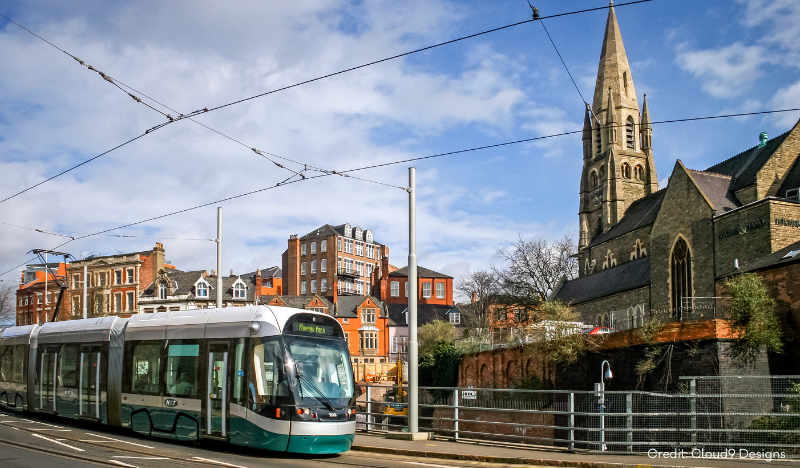
When you stop and ponder the contribution that Nottingham has made to the world of literature, it's easy to see that it's right up there with the greatest places across the globe. In 2015, its contribution to the written word was finally recognised as the city scooped one of the most prestigious titles - UNESCO City of Literature. As of 2024, there are only 53 cities that hold the coveted title across the globe such as Prague, Melbourne and Edinburgh, and Nottingham is one of the cities on the prestigious list. When you look at the wealth of literary talent that's been produced over the years, you can't doubt Nottingham's credentials and it's an achievement that the great Alan Sillitoe would probably have loved to write a novel about! There are of course three names that stand out when we talk about Nottingham's literary history - Lord Byron, D.H. Lawrence and Alan Sillitoe. The Romantic poet Byron was a controversial figure in Georgian England because of his views on politics and many other subjects. He regularly split opinion and was exiled for his beliefs. His first poem was written at the age of 10, describing Nottingham and his connection to the city. He lived at Colwick Hall and Newstead Abbey during his time in the county and left a legacy in England as great as any poet there has ever been.
.png)
DH Lawrence was one of the greatest novelists in English history and was born in the town of Eastwood in Nottinghamshire. His most famous novel was Lady Chatterley's Lover, which banned for many years because of its sexual nature. He radically transformed society's views on subjects such as female sexuality and he was inspired by the Nottinghamshire countryside and the impact of industrialisation.
Alan Sillitoe is Nottingham's most famous author of recent years with titles such as Saturday Night and Sunday Morning taking a Nottingham-centric view on post-War life. Like Byron and Lawrence before him, he has left a long lasting footprint on the world of literature. Alan died in 2010 but his works will continue to engross readers for centuries to come. As well as these three stand-out names, Nottingham can lay claim to several other names. JM Barrie is said to have used Nottingham's Arboretum as his basis for the story of Peter Pan during his time living here as a journalist. Katharine Morris took much of her inspiration from Nottinghamshire and the area surrounding Bleasby when writing her five rural novels. Nottinghamshire can also count Robert Millhouse, Mary Howitt and Philip James Bailey among its literary heroes. With this impressive history and vibrant contemporary scene, Nottingham can press on with building upon this fantastic recent achievement. With two outstanding universities, as well as groups set up to encourage and nurse future writing talent such as Mouthy Poets at the Nottingham Playhouse, there's a real sense of enthusiasm around literacy while hoping to discover the next potential Lord Byron or D.H. Lawrence. Add to that, events such as the Festival of Words, the Lowdham Book Festival, Nottingham Poetry Festival and the DH Lawrence Festival and you will see why Nottinghamshire is most certainly proud of its literary heritage. The title of UNESCO City of Literature is the final chapter in an enchanting story of Nottingham's journey through the pages of written history. To find out more information on Nottingham's journey to claim this prestigious crown, please visit the Nottingham City of Literature website. You will also find more information on how you can get involved with future events and initiatives across the city.
2024 marks 200 years since Lord Byron’s passing. Here in Nottingham and Nottinghamshire we are celebrating his life and legacy with a host of events and activities taking place throughout the year. Please click here for more details.
Related
Comments
Comments are disabled for this post.

 to add an item to your Itinerary basket.
to add an item to your Itinerary basket.










